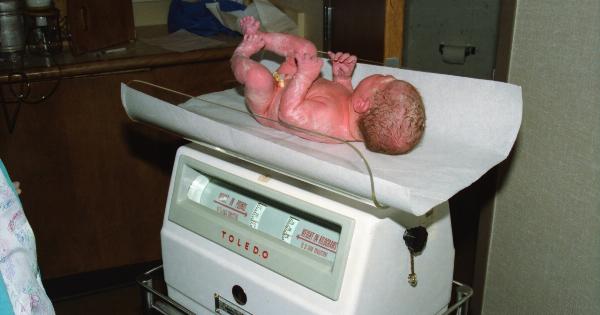Welcoming a new child into the world is an exciting and joyous event for any family.
One of the first questions that parents often ask is, “What is the normal weight range for newborns?” While every baby is unique and will have their own individual birth weight, there is a generally accepted range that is considered normal. This article will explore the typical weight range for newborns, factors that can influence birth weight, and the importance of monitoring a baby’s growth and development in the early stages of life.
Factors That Influence Birth Weight
Before delving into the normal weight range for newborns, it’s important to understand that birth weight can be influenced by various genetic, environmental, and prenatal factors. Some of these factors include:.
- Genetics: The baby’s birth weight can be influenced by the genetic makeup of both parents. If parents have a larger build, it’s more likely for their baby to have a higher birth weight as well.
- Gestational age: Babies born closer to full term (around 40 weeks) tend to have higher birth weights compared to those born prematurely.
- Multiple pregnancies: Twins or triplets tend to have a lower average birth weight compared to singletons as they have less space to grow in the womb.
- Maternal health: The mother’s overall health and nutrition during pregnancy can impact the baby’s birth weight. Certain medical conditions, such as gestational diabetes, can also contribute to higher birth weights.
- Gender: On average, male babies tend to have a slightly higher birth weight compared to female babies.
Normal Weight Range for Newborns
The normal weight range for newborns is typically between 5.5 pounds (2.5 kilograms) and 8.8 pounds (4 kilograms). However, it’s important to remember that this range is not set in stone and can vary.
Some babies may be smaller or larger than the average without any underlying health issues.
Birth weight is commonly used as a measurement of a baby’s overall health and well-being.
Babies who fall within the normal weight range are generally considered to be at a lower risk of certain health complications compared to those with very low or very high birth weights.
Babies who have a birth weight under 5.5 pounds (2.5 kilograms) are classified as low birth weight.
These babies may require closer medical attention and monitoring, as they may be at a higher risk of complications such as respiratory distress, infections, and developmental delays.
On the other end of the spectrum, babies with a birth weight over 8.8 pounds (4 kilograms) are considered to have a high birth weight.
While some babies may simply be larger due to genetics, a high birth weight can sometimes be an indicator of maternal health conditions like gestational diabetes. These babies may also be at a higher risk of birth injuries and difficulties during delivery.
Monitoring Growth and Development
The weight of a newborn is just one aspect of their overall growth and development.
Healthcare professionals closely monitor various other measurements, such as length and head circumference, to assess a baby’s growth trajectory and ensure they are thriving.
After birth, babies typically lose a small percentage of their birth weight within the first week. This is considered a normal physiological response and is often due to fluid loss.
However, they usually regain their birth weight by the time they are two weeks old.
Regular check-ups with a pediatrician or healthcare provider are essential to ensure that a baby continues to grow at a healthy rate.
These visits often include measuring weight, length, and head circumference, as well as assessing other developmental milestones.
Conclusion
While every newborn is unique and individual growth patterns may vary, the normal weight range for newborns is generally between 5.5 pounds (2.5 kilograms) and 8.8 pounds (4 kilograms).
Various factors, such as genetics, gestational age, and maternal health, can influence a baby’s birth weight. Monitoring a baby’s growth and development through regular check-ups is crucial to ensure they are thriving and reaching their developmental milestones.
Remember, every baby is different, and what matters most is their overall health and well-being.





























